Prescription medications play a pivotal role in modern healthcare. They provide targeted treatment for a wide range of medical conditions, from chronic diseases to temporary ailments. However, navigating the world of prescription drugs can be complex and at times overwhelming. In this comprehensive guide, we will demystify prescription medications, offering insights, tips, and essential information to help you understand, access, and safely use these vital tools for maintaining health and well-being.
Prescription medications are pharmaceutical drugs that can only be dispensed with a valid prescription from a licensed healthcare provider. They are distinct from over-the-counter (OTC) medications, which can be purchased without a prescription. Here are some key reasons why prescription medications are essential in healthcare:
Prescription drugs are designed to address complex medical conditions, including chronic diseases like diabetes, hypertension, and autoimmune disorders.
Healthcare providers can tailor prescription medications to meet the specific needs of individual patients, adjusting dosages and medications as necessary.
Prescription medications are crucial for managing acute and chronic pain, allowing patients to lead more comfortable lives.
Antibiotics and antiviral medications are vital for treating infections and preventing the spread of contagious diseases.
In emergency situations, prescription medications such as epinephrine and anti-seizure drugs can be life-saving.
Before delving into the details of prescription medications, it’s crucial to understand the prescription process:
A healthcare provider diagnoses a medical condition or ailment and determines whether prescription medication is necessary.
If medication is required, the healthcare provider writes a prescription, specifying the drug, dosage, administration instructions, and duration of treatment.
The prescription is taken to a pharmacy, where a licensed pharmacist dispenses the medication. Pharmacies may provide printed instructions and counseling on proper usage.
Patients should be informed about their medications, including potential side effects, interactions, and any precautions or special instructions.
Prescription medications encompass a vast array of drugs, each designed to serve a specific purpose. Here are some common categories:
Prescribed to treat bacterial infections, antibiotics like amoxicillin and azithromycin are essential for managing illnesses such as strep throat and urinary tract infections.
Opioids, nonsteroidal anti-inflammatory drugs (NSAIDs), and other pain relievers are used to manage pain, whether it’s post-surgery, chronic, or related to injuries.
Drugs like statins and beta-blockers are prescribed to manage heart conditions such as high blood pressure and high cholesterol.
Antidepressants, antipsychotics, and anti-anxiety medications help individuals manage mental health conditions like depression, schizophrenia, and generalized anxiety disorder.
Insulin and oral medications are prescribed to regulate blood sugar levels in individuals with diabetes.
These medications are prescribed to reduce the activity of the immune system, often after organ transplantation or to manage autoimmune diseases.
Prescription antiviral drugs are used to treat viral infections such as HIV, herpes, and influenza.
Hormone replacement therapy (HRT) and other hormonal medications help manage conditions related to hormone imbalances.
Using prescription medications safely is of paramount importance. Here are essential guidelines to follow:
Always follow your healthcare provider’s instructions regarding medication dosage, frequency, and duration. Do not deviate from the prescribed regimen.
Thoroughly read the medication label, paying attention to warnings, potential side effects, and any special instructions.
Keep your healthcare provider informed about all medications, supplements, and over-the-counter drugs you are taking to avoid potential interactions.
Store prescription medications in a cool, dry place, away from children and pets. Some medications require refrigeration.
Dispose of expired or unused medications according to recommended guidelines to prevent accidental ingestion.
Familiarize yourself with potential side effects and contact your healthcare provider if you experience any adverse reactions.
Some medications interact negatively with alcohol or specific foods. Be aware of any such interactions and heed warnings.
Access to prescription medications is a critical aspect of healthcare. Here’s how to ensure you can obtain the medications you need:
Health insurance coverage can significantly reduce the cost of prescription medications. Choose a plan that aligns with your healthcare needs.
Review your insurance plan’s formulary to see which medications are covered. Consider asking your healthcare provider to prescribe medications on the formulary.
Many pharmaceutical companies offer patient assistance programs for individuals who cannot afford their medications. Research whether you qualify for such programs.
Pharmacy prices can vary, so compare prices at different pharmacies to find the best deals. Generic versions of brand-name medications are often more affordable.
Some insurance plans offer mail-order pharmacy services, which can be more convenient and cost-effective for obtaining long-term medications.
Prescription medications are a cornerstone of modern healthcare, providing effective treatments for a wide range of medical conditions. By understanding the prescription process, different types of medications, and safe usage guidelines, individuals can make informed decisions about their healthcare. Access to prescription medications is essential, and patients should explore options to ensure affordability. When used responsibly and under the guidance of healthcare professionals, prescription medications can significantly improve health and quality of life.

